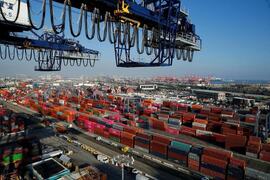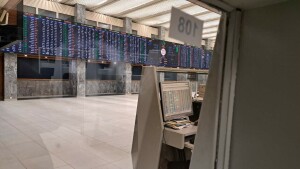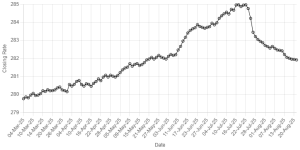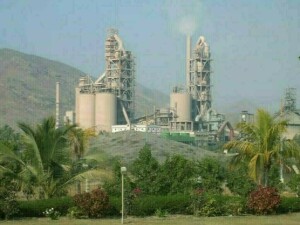Brazil's position as an agriculture powerhouse may be bolstered by rising trade tensions between the United States and China after US President Donald Trump announced his plan for steel and aluminum tariffs, an official said on Friday. Brazil is the world's largest exporter of agricultural goods including soyabeans, beef and sugar. China is the globe's largest soya importer and last year bought 95.5 million tonnes of the oilseeds, more than half from the South American nation.
"Signs of growing tensions between the United States and China may be a good opportunity for Brazil, given our prowess to produce grains like soya and corn," said Carlos Favaro, vice governor of Mato Grosso state, Brazil's largest grain-growing region.
Brazil sold $20.3 billion in soya to China last year. It has increased that trade over the years, from 22.9 million tonnes five years ago to 53.8 million tonnes in 2017. Favaro, himself a soya producer, added that Brazil could expand commercial ties with China, noting such bonds have been steadily growing in recent years as China has invested heavily in Brazil's agribusiness sector and infrastructure projects.
"China needs our raw materials and we need strong commercial ties with them, while maintaining our sovereignty," Favaro said. Brazil's industry ministry said on Thursday after Trump announced his tariff plan that the country would consider taking action on its own over the tariffs or in concert with other nations. Roberto Rodrigues, Brazil's agriculture minister between 2003 and 2006, said Trump's announcement was not good news, regardless of its impact on grain exports.
"Agriculture may benefit, but for the steel industry this is negative," he said. "One sector wins, but not Brazilian society." Rodrigues said he feared that if the United States goes ahead with its tariffs, it could "create a wave of protectionism." Brazil exported 110.8 million tonnes of grains in 2017, including soyabeans, soyameal, soya oil and corn, according to data from shipping company Williams. The Brazil unit of China's food company Cofco Corp was among the country's five top exporters with 9.3 million tonnes, the data showed.
Favaro's remarks demonstrate that Brazil could benefit from growing US protectionism, though he said "it is early to define" how the situation will play out. Jason Hafemeister, trade counsel to the US agriculture secretary, told Reuters last week that the United States has been concerned that China might impose trade barriers on US grains sales if trade relations between the world's two largest economies worsen. Already, a tougher US trade stance in relation to Mexico has benefited Brazilian farmers, who exported 10 times more corn to Mexico last year amid concern that NAFTA talks could disrupt their US supplies, according to government data and top grains merchants.
US Agriculture Secretary Sonny Perdue said he does not see a threat from Brazil to US corn sales to Mexico because American farmers enjoy advantages in areas like logistics that Brazilian farmers do not.
Rodrigo Lima, general director of Agroicone, a Sao Paulo-based international trade think tank, believes US trade tensions could boost the potential of some bilateral talks Brazil is conducting, especially with Mexico. "Mexico was always a hard market to enter, due to non-tariff barriers, sanitary barriers. But talks are progressing now. We are discussing preferences," he said. "We are selling corn to Mexico now. Can we sell poultry? Can we sell beef?"
Even if certain products benefit, Brazil in general would suffer in the event of a broader trade war because it relies on stable, predictable global trade rules as a country with limited clout compared with big players, said Oliver Stuenkel, an international relations professor at the Getulio Vargas Foundation in Sao Paulo.
BR100
15,115
Increased By
28.1 (0.19%)
BR30
43,048
Increased By
175.6 (0.41%)
KSE100
149,493
Increased By
257.8 (0.17%)
KSE30
45,518
Increased By
11.6 (0.03%)























Comments
Comments are closed.